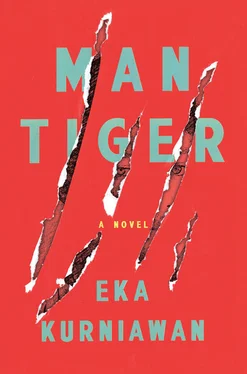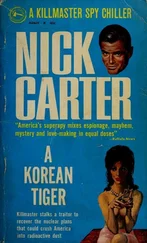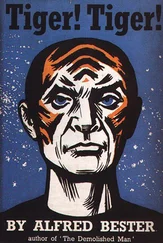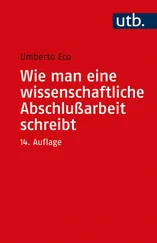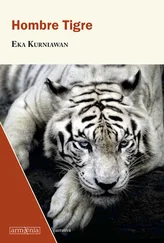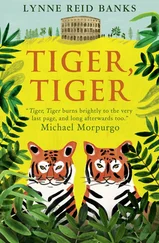Margio remembered when the railway still operated, back in the early days after the family relocated. It was a dead-end route — a few miles to the west the train would reach its terminus. The railway used only one train, going back and forth, and thanks to this it could stop any time it pleased without worrying about collisions. The joke went that one passenger always asked to be dropped in front of his house instead of at the station, while another hailed the train to stop so he could get on board, and sometimes the engine driver had to hit the brake as the track was covered in firewood or resting cows, which had to be removed for the journey to continue. This joke was based entirely on truth, so far as the townsfolk were concerned. Then one day the train stopped coming, with no prior announcement or explanation, like a girl who silently ditches her boyfriend.
The station chief was still around, although no one knew if he’d retired or was still waiting for the ghost train’s return. He lived next to the ruined station building, and people still referred to him as Station Chief. The building itself was nothing but bare bones. Piece by piece, it had lost all its equipment save for its timeless bell and the station’s signboard. The ticket office was home to a wicker mattress used by various prostitutes, and the platform was crammed with dovecotes and chicken cages. Such was the palace of the cockfights and pigeon races. Every sunny afternoon, rows of birds could be seen flying faster than the train ever had. Elsewhere, the roosters would cavort, testing their spurs on each other.
When Margio arrived, it was too early for the usual hustle and bustle. All he found was a homeless mother and her child sat on a piece of cardboard, a dog rummaging in the garbage.
There was no one to ask about Komar’s whereabouts. Disgruntled, Margio leaned on the bar of a crossing gate. The bastard should be here, he thought, inspecting the splatters of chicken and pigeon guano on the platform as if searching for traces of Komar’s purebred rooster. People came walking up a path that crossed the railway track, pushing their bikes, carrying dark green bananas and sacks filled with who-knows-what, seemingly headed for the market. Women clutched their baskets on their way back from shopping. He kicked the gravel before leaving, walking on one rail and trying to keep his balance.
When the train ceased to run, he had stopped hanging out here. Back when he had found the billowing dark smoke from the locomotive’s chimney fascinating, Margio would spend whole afternoons watching it go by. When the train was being turned around in the shunting yard, he joined the other cheerful little boys, who climbed on board and dangled fearlessly from the locomotive as it rotated. At other times, hearing the sound of the distant train, he would put a nine-inch nail on one track to get it flattened by the fearsome wheels. That way he’d have a small knife that only needed a little filing to make it really sharp. Some old men spotted what he was doing and tried to scare him by saying that he might make the train run off the track. Margio didn’t believe them, and he went on as before. One day the train hit a fat cow, and instead of running off course, it nearly split the cow in half.
These days, Komar ruled the station with his gambler friends. As Nuraeni became increasingly crazy, the flower jungle appeared, and his wife’s willingness to share his bed vanished, Komar resorted to this sanctuary. Almost every afternoon, after returning from his stall and hurling his bike at a cluster of roses, he’d carry his purebred rooster to the arena. Under a mercury lamp still glowing from the time of the station’s heyday, he would hang about until late in the night, watching the games, feeding his rooster, or bathing it with what he called a herbal concoction.
No one in the house was interested in this business of his, and since Komar’s infatuation with the rooster had made him less violent at home, they were not inclined to complain. His animalistic instincts were apparently channeled into cockfights, and the occupants of number 131 found a little peace as a result, until the day Komar learnt his wife was pregnant and went berserk. After that, he spent even more time at the station. Someone said he had seen Komar sleep there, perhaps with a prostitute in that ticket office, and Margio couldn’t care less. The more Komar wasn’t home, the better. Nuraeni had suffered enough at his hands.
There was no sign of him there, although he had left home with his purebred. Perhaps he had fallen out with someone, who would slit his throat, chop up his body, and put it in a sack with a bunch of rocks before throwing it into the river. Komar would be gone forever, and the thought gave Margio a thrill as he sluggishly walked along the track and through the brick factory to get home.
At number 131, he found the strapping rooster in the front yard. A rock held its cage steady against the wind. The man himself slumped in a chair inside, smoking a clove cigarette. This annoyed Margio immensely, and he tried to mock him, asking, “To what do we owe the pleasure, sir?” But after seeing the tired wrinkled face, a different grief crept into his soul, as he looked at the man who had seen, or would soon see, the death of an infant who was not his daughter though born to his wife.
Margio sat far across from him, staring without a word, before turning his face toward the room where Nuraeni forlornly contemplated the dying baby. He then turned his gaze back toward Komar, rusting away in his old age. The family was now complete, everyone present and all its fractures and hatreds accounted for. This couldn’t be good. Komar glanced at Margio, briefly, unable to counter the boy’s gaze, and then returned his attention to the clove cigarette between his fingers. Margio stared blankly, his eyes half closed, not sure what he was thinking, and focused solely on his own breathing. Mameh was the only one to stir. She carried the water bucket back into the kitchen, before returning to the room to sit on the edge of the bed. Nuraeni looked up at Margio, also very briefly, before staring at the baby who had started to fall asleep, probably never to reawaken.
It was still alive when a new day came, though it moved less than ever. Its mother’s milk had dried up, and the infant only gave Kasia’s bottle a brief lick despite Nuraeni’s efforts to force some of the liquid into its mouth. The sockets of its eyes had deepened, and its mouth drooped. The smell of death emanated from it, like steam from a pot of hot rice.
The baby fought the angel of death, and Komar wouldn’t look at it. Not once had he entered the room from which it never emerged, the mother fearing what the wind might do to such a tiny body. The cruel father merely sat in his chair smoking his clove cigarettes. Should his stomach insist on being filled, he would go to the kitchen and eat alone, without requesting or offering anything. Margio didn’t move much. He slept in his chair and forgot about his friends. He watched events at home as if he were watching a play, coolly interested in how the actors performed the roles assigned them.
At nine Komar left for his stall, and relative peace followed, though Nuraeni didn’t cease to fret over the little one. It wasn’t the baby’s life that Margio was worried about. If the half-living doll died, he was sure his mother would descend even further into madness. He wished Komar would do something — regardless of the baby’s paternity — for Nuraeni, instead of just fussing over his rooster. But it was clear to everyone that Komar was glad the child was wasting away, eager for it to die.
On the seventh day, the man went missing. The rest of the family was overjoyed that the baby had survived so long on the few drops of bottled milk it managed to lick from the bottle. Nuraeni, Mameh, and Margio began to feel hopeful. A week was a milestone. If the baby could make it this far, it might tough it out for a year, a decade, or longer, even though its tiny frame was no stronger and its breathing imperceptible. Margio caught something like a smile on Nuraeni’s face, and the woman found the courage to bring her baby out of the bedroom, tighly wound as ever to defend it against the elements.
Читать дальше
